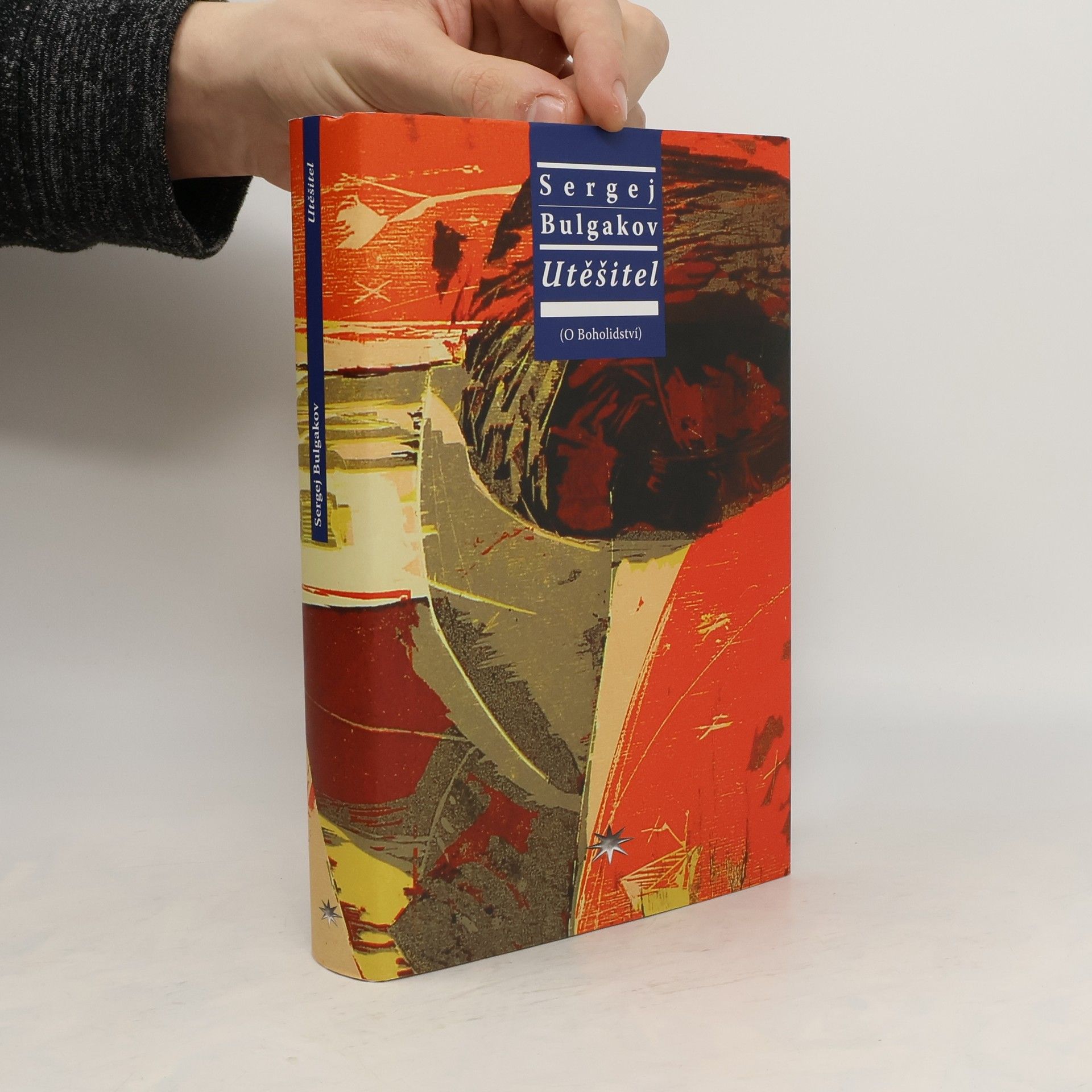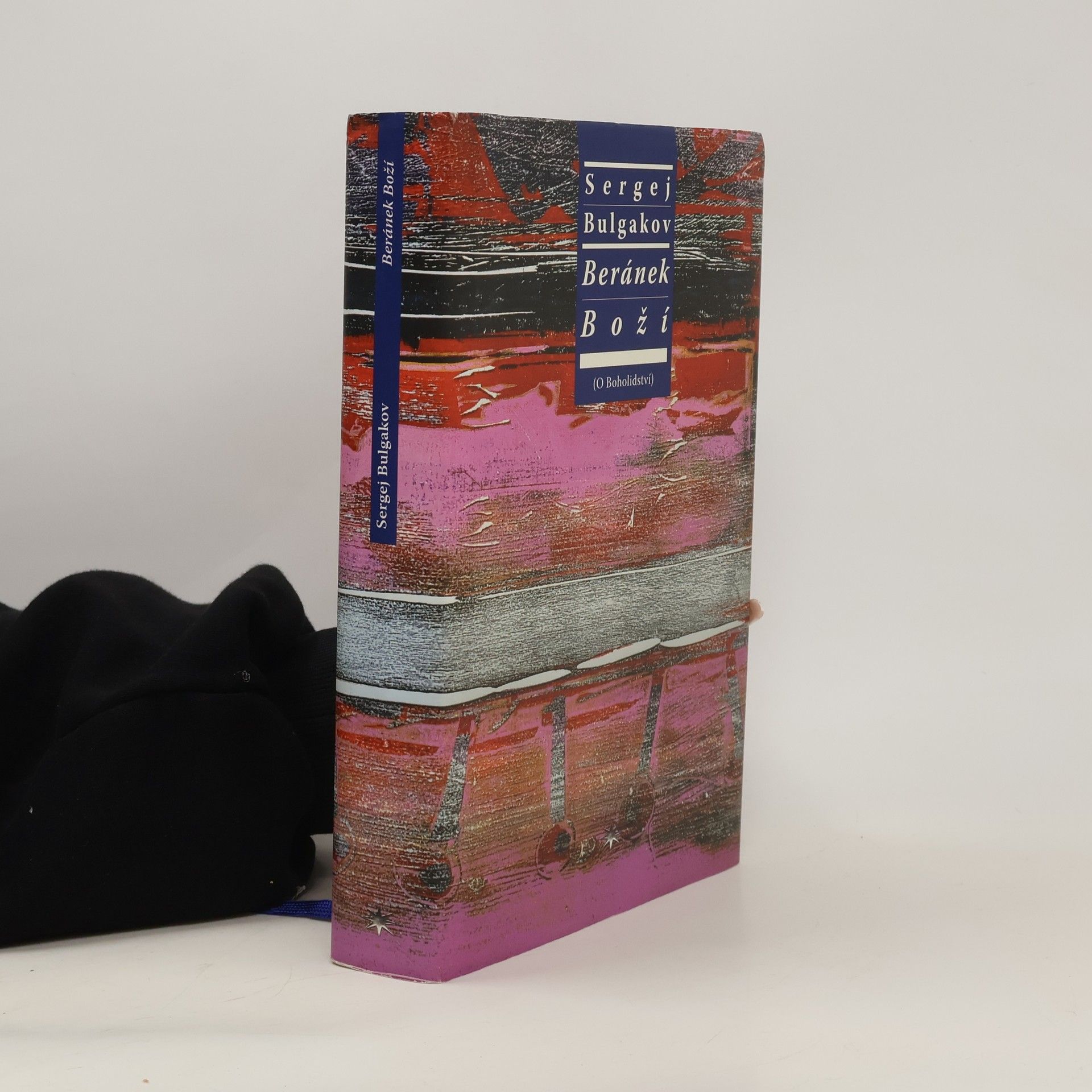Insights on death and judgement from one of thegreat modern Orthodox theologians
Sergej Nikolajevič Bulgakov Volgorde van de boeken (chronologisch)







Spiritual Diary
- 238bladzijden
- 9 uur lezen
Exploring the life of Fr. Sergius Bulgakov, this volume presents his Spiritual Diary, revealing the thoughts and emotions of a significant twentieth-century theologian. It captures his experiences as a priest in exile, highlighting his struggles with personal prayer and the impact of the Soviet regime on his homeland. The diary offers insights into his theology of Sophia, emphasizing Divine Wisdom's role in creation. Enhanced by biographical and theological introductions, this work serves as both a scholarly resource and a source of spiritual contemplation for readers across Christian traditions.
The Eucharistic Sacrifice
- 140bladzijden
- 5 uur lezen
The book presents Sergius Bulgakov's comprehensive thoughts on the Eucharist, showcasing his theological insights and reflections. As the final English translation of his work, it captures his deep exploration of this sacrament, emphasizing its significance in Christian faith and spirituality. Through Bulgakov's perspective, readers gain a profound understanding of the Eucharist's role in religious life and its implications for faith and community.
The Sophiology of Death
- 230bladzijden
- 9 uur lezen
Exploring the ultimate fate of humanity, this collection of essays by Russian Orthodox theologian Sergius Bulgakov addresses critical questions of Christian eschatology, including universal salvation and individual destinies at death. Bulgakov argues for a magnificent restoration of all beings through Christ's redemption and emphasizes the importance of Christian political action in manifesting God's kingdom on earth. Drawing from Scripture and personal experience, he offers profound insights into human mortality and divine accompaniment during the dying process, enriching the understanding of eschatology's personal, political, and universal dimensions.
Ze slavné Bulgakovovy sofiologické trilogie se souhrnným názvem „O Boholidství“ v českém překladu vyšla její první část: „Beránek Boží“ (o Ježíši Kristu), a část třetí: „Nevěsta Beránkova“ (o církvi). Nyní se nám do rukou dostává část druhá: „Utěšitel“ (Duch Svatý) – spojovací článek mezi osobou Krista a jeho Nevěstou církví. Centrem pozornosti je tu Duch Svatý, kterého učedníkům posílá Syn od Otce, aby církev mohla slavit svůj manželský sňatek s nebeským Ženichem Kristem ve chvíli jeho druhého příchodu. Již otcové církve se ptali: „Jak vlastně vyobrazit Ducha Svatého?“ Jeho ikonografické motivy jsou chudé – obecně známý je snad jen symbol holubice. Zkušení ikonografové ale dosvědčují, že výrazným obrazem Ducha Svatého je každý člověk usilující o duchovní zralost. Bulgakov se opírá o skvělou znalost biblických a patristických textů, s pohledem na vývoj akcentů teologie obou tradic: Východu i Západu. Celá trilogie zařadila Bulgakova mezi nejvlivnější teologické myslitele 20. století.
Icons and the Name of God
- 194bladzijden
- 7 uur lezen
Exploring the intersection of Orthodox theology and art, this work delves into how icons and the name of God convey divine revelations that shape our spiritual identity. Sergius Bulgakov addresses significant historical controversies surrounding icon veneration and the sanctity of God's name, arguing that an icon transcends mere artistry when it is named. This translation of two pivotal essays offers a deeper understanding of these theological concepts, making Bulgakov's insights accessible to a broader audience for the first time.
Exploring the intersection of myth, philosophy, and personal faith, this work reflects Sergius Bulgakov's experiences in Orthodoxy during the chaotic period leading up to the 1917 October Revolution. It embodies the experimental spirit of the Russian Silver Age, presenting a collection of essays that articulate the struggles of Bulgakov and his contemporaries with modernity. The narrative draws parallels to St. Augustine's works, offering insights into the challenges faced by Orthodoxy and the broader cultural context of the time.
Relics and Miracles
- 116bladzijden
- 5 uur lezen
Boris Jakim here presents two major theological essays by Russian Orthodox theologian Sergius Bulgakov in English translation for the first time. "On Holy Relics," a 1918 response to Bolshevik desecration of the relics of Russian saints, develops a comprehensive theology of holy relics, connecting them with the Incarnation and showing their place in sacramental theology. The second essay, "On the Gospel Miracles," written in 1932, presents a Christological doctrine of miracles, focusing on how human activity relates to the works of Christ. Both essays are suffused with Bulgakov's faith in Christian resurrection and with his signature "religious materialism," in which the corporeal is illuminated by the spiritual and the earthly is transfigured into the heavenly.
Beránek Boží - O Boholidství
- 509bladzijden
- 18 uur lezen
První díl teologické trilogie. Ruský myslitel Sergej Bulgakov (1871–1944), žijící dlouhá léta v Paříži, patří bezesporu mezi největší teology 20. století. Z grandiózní trilogie o Boholidství existuje v českém překladu její třetí část Nevěsta Beránkova (o církvi s pohledem na svátosti a eschatologii) a připravuje se k vydání druhá část Utěšitel (o Duchu Svatém). Nyní se čtenáři dostává do rukou první část z celku trilogie, Beránek Boží, sledující historický vývoj tajemství o Kristu, který je Člověk a Bůh zároveň. Aktuální a brilantní jsou pasáže o lidských karikaturách, které vždy redukují složitou problematiku na omezenou část. Pochopit spojení božské a lidské přirozenosti v Boh?člověku lze podle Bulgakova jen za pomoci poctivé sofiologie: ta je paradoxem odevzdávajícího se Boha, který primárně přinesl člověku krásu kvůli Ženě.
Jaltský a konstantinopolský deník
- 159bladzijden
- 6 uur lezen
Duchovní deník teologa II. Deníky Sergeje Bulgakova (1871–1944) dýchají spontánností. Krátké texty nebyly zamýšleny k publikování. Jsou záznamem vnitřních podnětů, popisují setkání, osobní zápasy. Uvádějí do autorova bilancování s životem, těžkou nemocí i blížící se smrtí. Ukazují duchovní tvář největšího ruského teologa moderní doby. Jsou neopakovatelným svědectvím křesťanské naděje.


